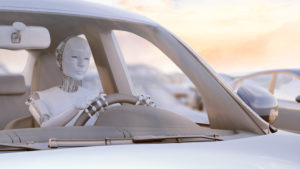
By Rishon Blumberg, 10x Management Co-Founder
Forbes has just done a great job of not only outlining the larger issues and benefits of automation but of also diving into the ancillary areas where these changes will have an impact.
How will automated cars actually affect our lives? People think about being able to sit in their car, maybe watch a movie or read, while they get from Point A to Point B. Traffic will be reduced and accidents will go down. Roads will be safer. But let’s think about how automated cars will affect the economy and other aspects of our lives in ways that we probably don’t think about much right now.
No more auto insurance industry: Car insurance will likely disappear. Automated vehicles are expected to reduce car accidents by around 90%. Along with car insurance, we will also see auto repair shops dwindle. Less accidents = less repairs.
More wine? Liquor sales will increase, because people will no longer have to worry about DUIs! People will go out and have that extra glass of wine at the end of the night.
Hospitals: With 90% less car accidents, hospitals will be able to help other patients and save time and resources.
Say goodbye to the house garage: why would you need to have a place to park your car if an autonomous vehicle can pick you up on demand? People will own far fewer cars than they have in the past, which means no need for a garage.
The car interior: let’s think of all the imaginative ways that we can redesign the interior of a car. With no need for a driver, space and comfort will be king. Interior designers will have a field day.
Parking: If a car can drop you off and then drive away, people will no longer have to find a parking spot! This will massively ease congestion in cities and save the environment, and save many people aggravation.
However, while it’s clear that there will be a variety of societal benefits from automation, there will also be MANY areas for concern, particularly net job loss and social stability. These areas of concern will require our best minds to tackle and our most compassionate, forward-thinking politicians. The sooner we can start discussing the problems, and creating solutions, the better prepared we’ll all be for when these changes start to really impact the masses.
If you like this article, you might enjoy reading Remote Work is Becoming More Mainstream

